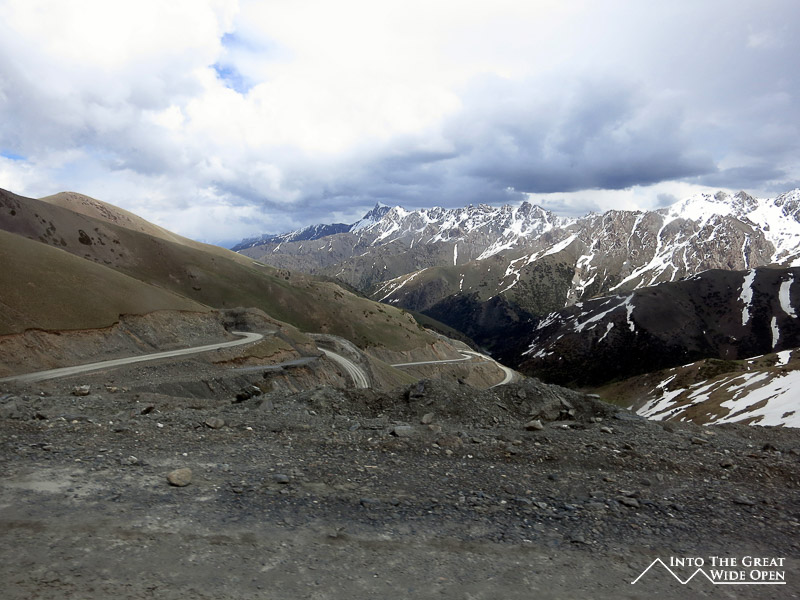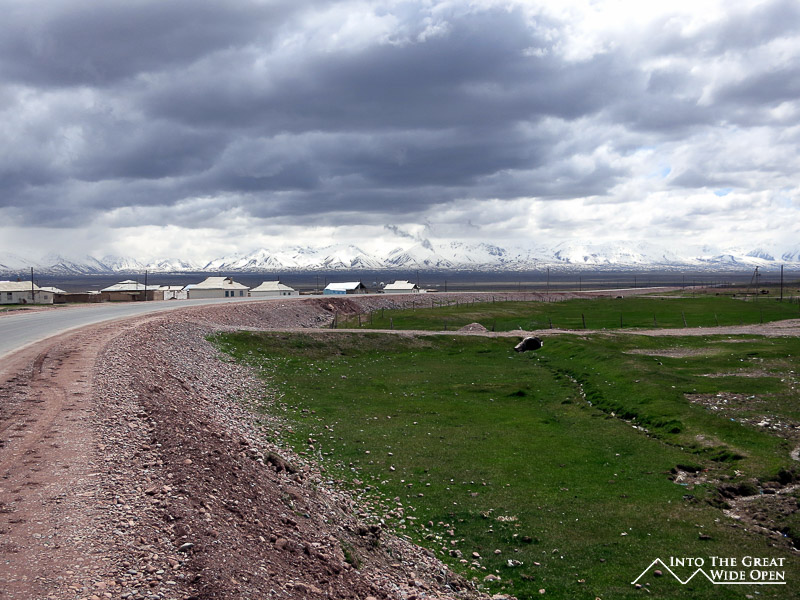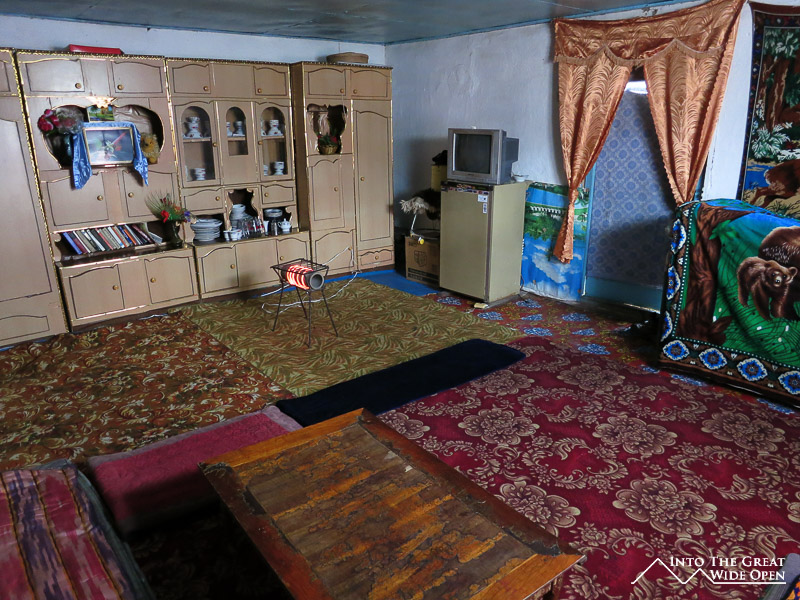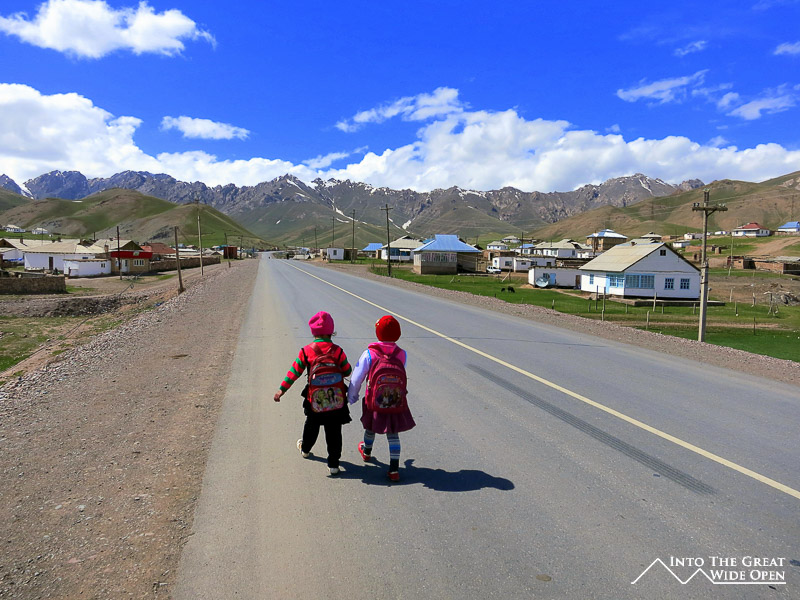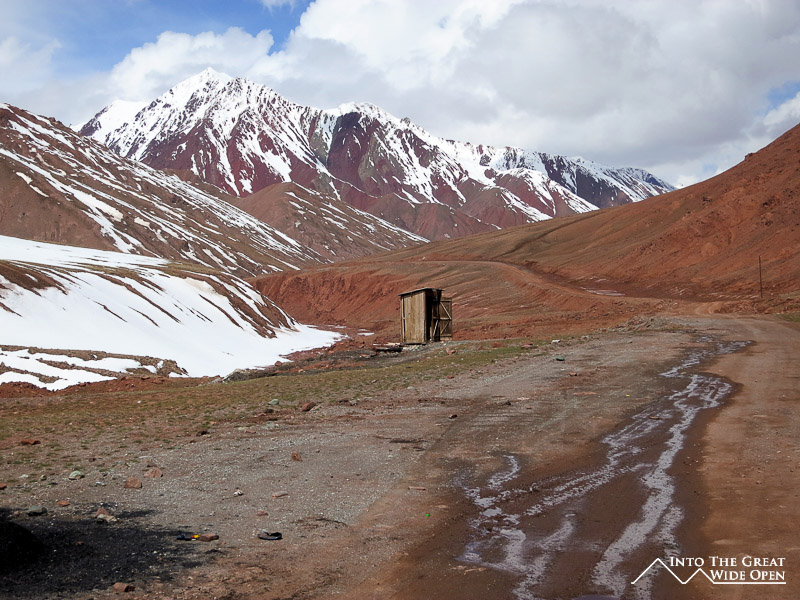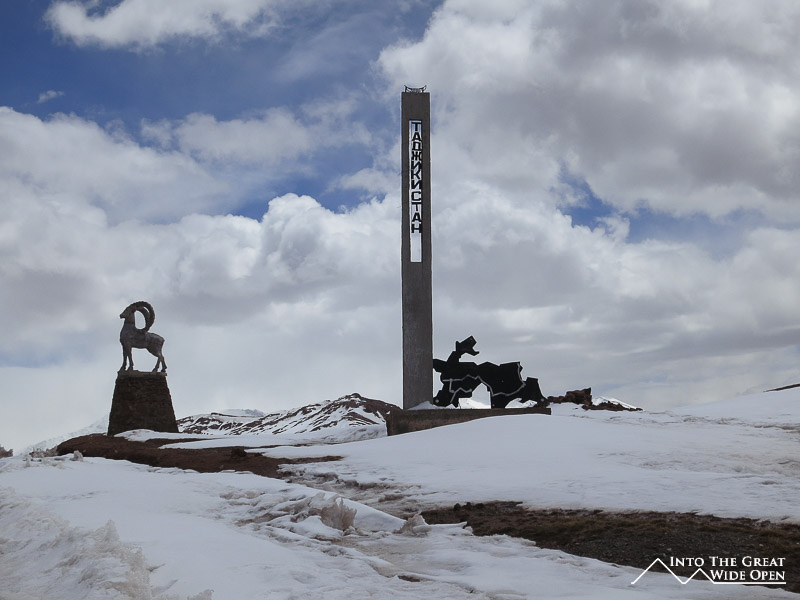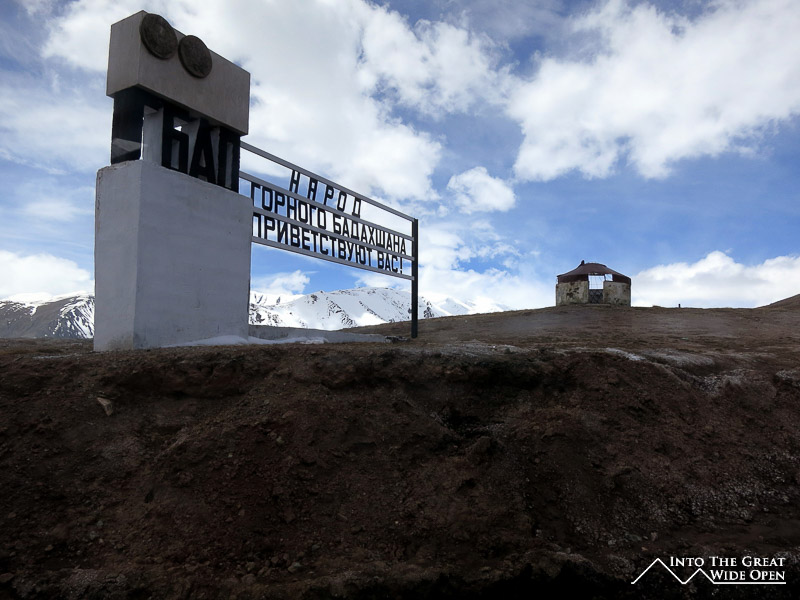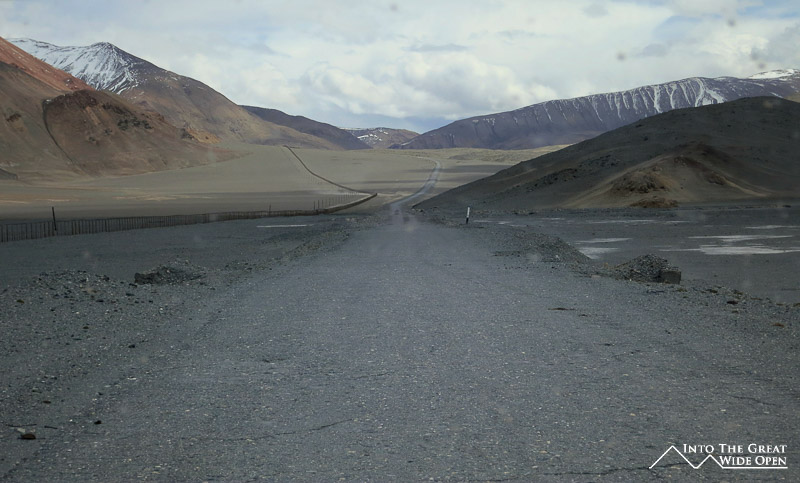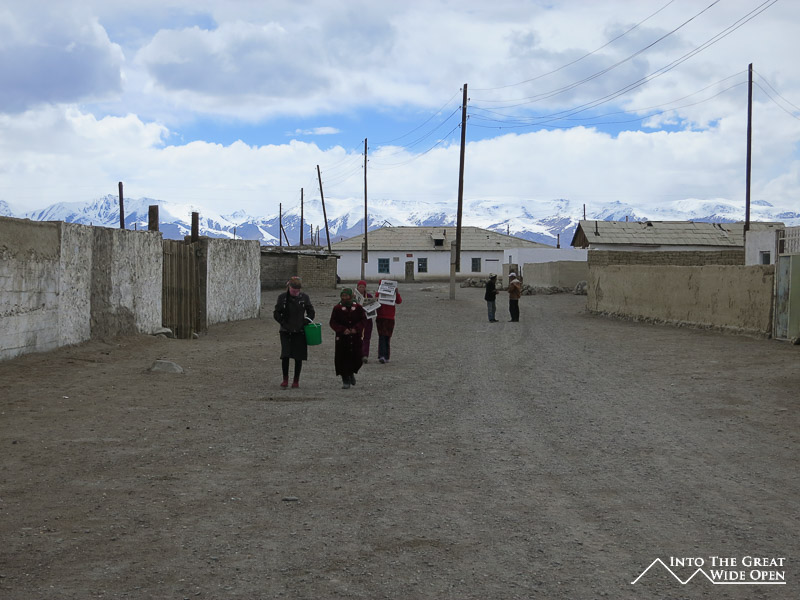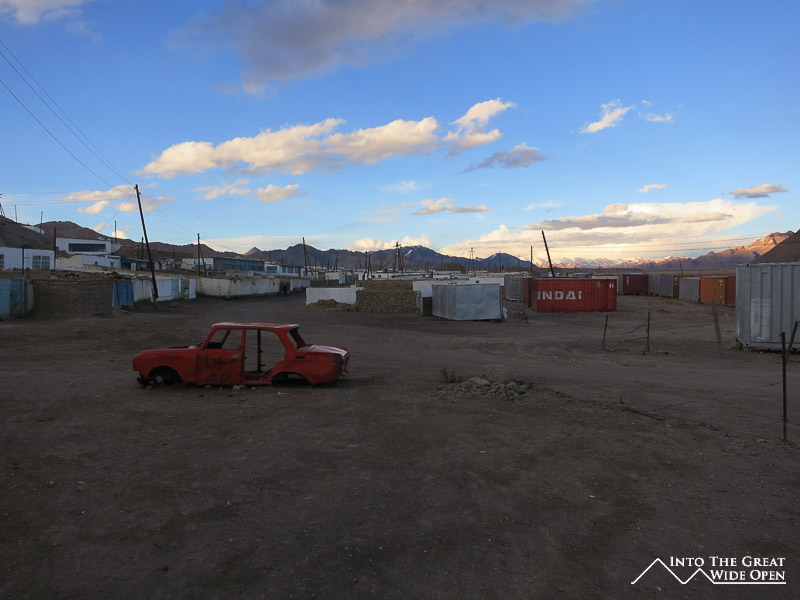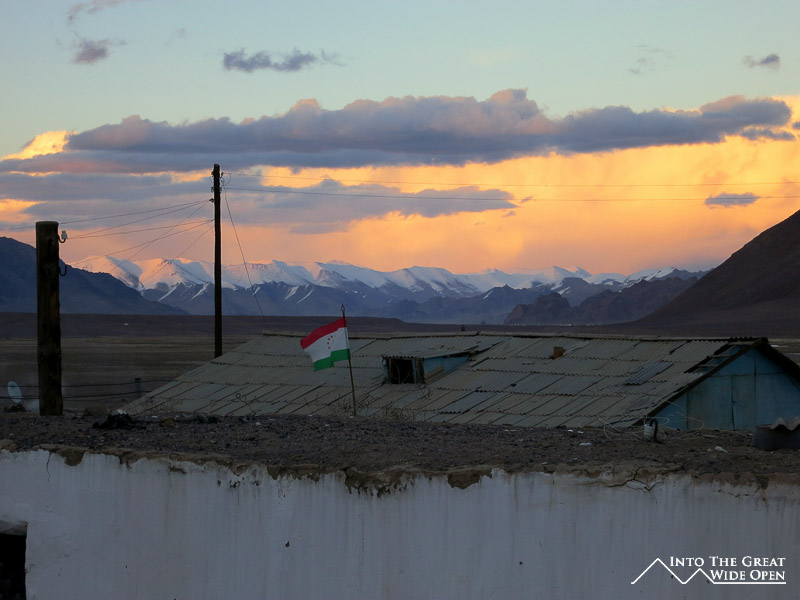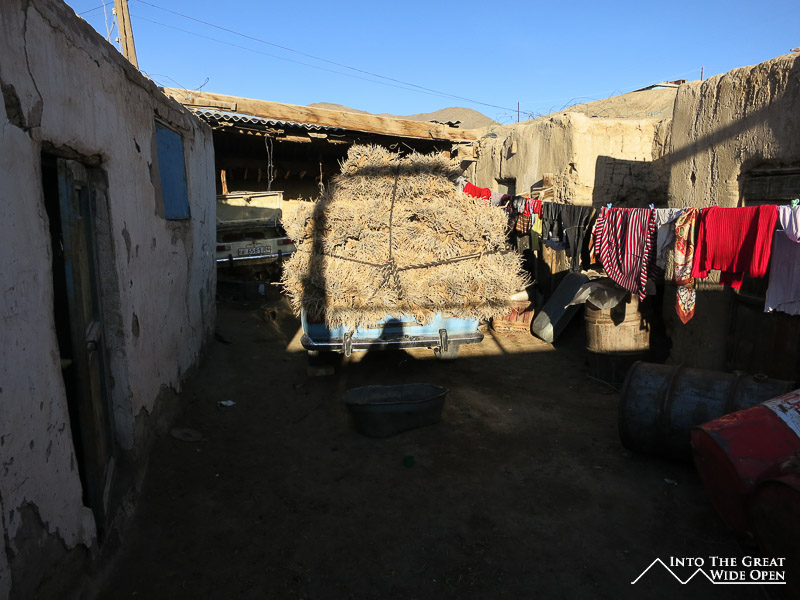Murgab, Tajikistan
The Pamir Highway Part I - The Loneliest Road
May 19, 2012
We're on a road to nowhere
Come on inside
Takin' that ride to nowhere
We'll take that ride
- Talking Heads
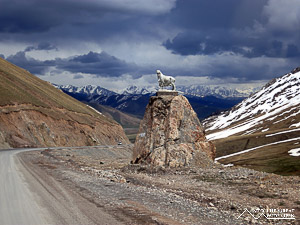
The Pamir Highway connects Osh, Kyrgyzstan to Khorog, Tajikistan and travels through some of the emptiest parts of the world; places that make you question why the road would even exist. The road begins innocently enough from the lowlands of Osh, passing through green river valleys and numerous small villages as it heads southeast towards Sary Tash. Just before Sary Tash a wall of mountains looms in front of the road and through a series of switchbacks the road folds back over and above itself, climbing to 3615 meters at the Taldyk Pass. From the top of the pass views of the steep descent and the array of snow covered peaks on the fringes of the Chinese border come into focus.
On the other side, at the base of the pass sits Sary Tash, a tiny village at the junction of three border roads. To the east the road leads to China through the Irkeshtam Pass, to the southwest the road heads towards Dushanbe and to the south the road travels through the Pamir Mountains to Murgab and Khorog. Sary Tash seems to exist solely to serve those in transit to or from these places. It is at such a high altitude (3100 meters) that there are no trees and nothing grows higher than a few random weeds. The town has a few “cafes” which are really just stores selling stale cookies and possibly some packaged cheese and salami but nothing fresh, not even bread. I spent the night here, arriving too late in the day to attempt the next stretch of the road to Murgab. In the late afternoon the bright sun made it warm and pleasant to walk around the spread of houses near the crossroads. There were children playing in the streets after school had let out and a few trucks rumbling through on their way to other places. I found a place to stay in one of the two or three guest houses in the village, my room consisting of the floor, a small table, some pads and blankets, and an ancient heater that was adequate enough considering it was just electricity running through a metal wire wrapped around a ceramic tube. At night the bitter cold from the altitude drives people inside and the one restaurant in town with terrible food empties out as the truck drivers move onward towards their destinations. Walking back to my room I could see people watching black and white TVs in their small houses.
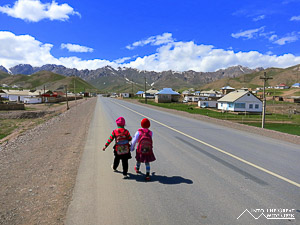
In the morning a few soldiers gave me a ride to the checkpoint just south of town so I could find onward transport to Murgab. I’m not sure why the checkpoint exists because they never stopped anyone, at least while I was waiting. I managed to find a ride with a Tajik driver heading back to Murgab from Osh in an old Soviet jeep. Here in Kyrgyzstan, every vehicle is more or less a taxi, especially in these far flung places, with drivers picking people up and dropping them off for a negotiated amount.
Leaving Sary Tash the road passed into further isolation towards the array of mountains visible on the eastern edge of Sary Tash. Parts of the road had eroded so badly through the series of storms and snowmelts that in places there was hardly anything left. After a small delay at Kyrgyz immigration we stopped just short of the border for tea, bread, and butter at the house of a family that lives in the middle of nowhere. Why they live there, I am not sure but the man said he and his family were happy there. Just past their house we crossed the Kyzl-Art Pass at 4282 meters and entered Tajikistan and the Gorno-Badakhshan (GBAO) region.
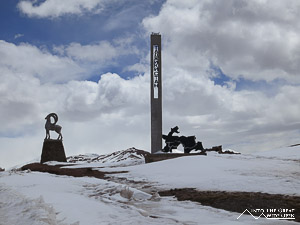
This section of the road, from the border to Murgab passes through near complete isolation with only one village, Karakul, in the middle. The altitude is so high that nothing seems to live here, the only animals I saw were a few hawks swooping along the mountainsides and some species of furry gopher scurrying along the dry and rocky terrain. Along the roadside, sometimes very close, the barbed wire fence of the Chinese boarder runs almost unbroken, save for the random gates every dozen kilometers or so which were left open. Why you would build a fence for hundreds of kilometers through this vast emptiness and then leave the gates open makes no sense at all, not that there is anyone around to watch over it anyways. The old Soviet jeep struggled slowly through the wilderness, with a top speed of somewhere between 50 and 55 kilometers per hour, it was hard to say exactly as the speedometer needle wobbled in tandem with every bump in the road. Climbing the hills we sometimes managed only 10 to 20 kilometers per hour, the gears grinding with every shift. A few times the gears slipped and we started to slowly roll backwards before the driver managed to re-engage the transmission. After a few steep climbs we had to pull over and add more coolant (water) to prevent the jeep from overheating. Luckily the jeep did not overheat, as the thought of spending the night outside at 4000 meters with no shelter was not encouraging. Nor would there be any other options or help available, on a weekend there was no traffic whatsoever and no cell phone service. In the 233 kilometers from Sary Tash to Murgab we passed 2 vehicles going the other direction and nothing else.
After such a stretch of emptiness the glare of the big white expanse of the still frozen Karakul Lake was really remarkable. All around the western edges of this high altitude plateau the snow covered peaks of the Pamir Mountains ringed the lake. At almost 4000 meters the salt water lake was still nearly completely frozen over in the second half of May. On the shore of the lake we stopped at the village of Karakul for a late lunch of soup and bread. The few whitewashed buildings of the town were gathered around dusty dirt streets with residents moving about with their faces covered for protection against the altitude, strong sun, and biting wind.
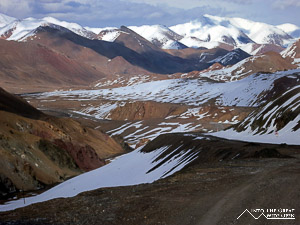
The final section of the road passed through more isolation to the highest pass, the Ak-Baital pass at 4655 meters, after which it was downhill to Murgab. The driver of the vehicle said that the guest house I wanted to stay at had closed but that he would take me to another one. It was getting late and I wasn’t about to go wandering the unlabeled and unlit streets of the town to verify this anyways. He took me to the house of a family he knew where I could spend the night. I had tea with them in what I suppose would be their living room but was just a room with a stove and some pads on the floor. After sitting in the uncomfortable jeep for eight hours and the hard floor for another hour I went out walk around the town.
Murgab, it seems, is Sary Tash’s sister city in misery. It also sits at the intersection of three roads, north to Kyrgyzstan, east to China via the Qolma Pass, and west on the Pamir Highway to Khorog. At least Murgab was larger than Sary Tash, but its remote location still made it seem like a place where you would much rather be leaving than staying. The bazaar was a ragged collection of old shipping containers and rusted trailers in a jagged line and was deserted by the time I arrived. There were lots of children playing in the streets and all were excited to see me and wanted their pictures taken in the fading sunlight. As it began to get dark I headed back to the family’s house, not wanting to get lost in the darkness. The town has had no electricity for the last 10 days due to ongoing repairs to the electrical system so the only form of light is through generators or solar panels and batteries that power dim light bulbs. Heating and cooking are accomplished by burning rugged woody stumps with short gnarled branches that are dug up from the ground. If that sounds bad consider that for one month this winter the town was completely cut off from the outside world due avalanches and snowfall on the roads. Supplies had to be airlifted in by helicopter, provided by Aga Khan’s charity, not the government. A man I talked to said that times were much better under the Soviet Union, as money poured in to support what might otherwise be a region that is probably not self-sustainable. Now, under the vastly poorer Tajik government there are few jobs and no industry save the slim but growing popularity of tourism in this remote and beautiful area.
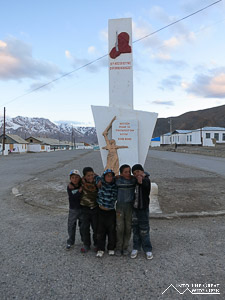
The harsh climate and desolate surroundings of the region couldn’t be more different from the warmth of the people. Greetings are done by handshake and, “Assalom aleykum,”peace be with you, or by touching your right hand to your heart if from a distance. Even when I walked the streets I was greeted this way by the people, with a certain overwhelming genuine good spirit that has all but disappeared with the fast pace of the societies we know. When I returned to the family’s house I realized that in fact it was not a guest house at all but that they were letting me stay in their room while they slept in the living room. They served me a simple dinner of tea, soup, and bread, with the soup being some vegetables and pieces of meat, which, by the texture I think was some kind of animal stomach, though which animal I could not tell with the dim light. The darkness and isolation brought out a dazzling array of stars in the sky and huddled under the blankets in the high altitude cold of the heatless room I slept poorly on lumpy pads on the floor, thinking about how hard and simple life is for these people but that maybe in some ways they are better off.

